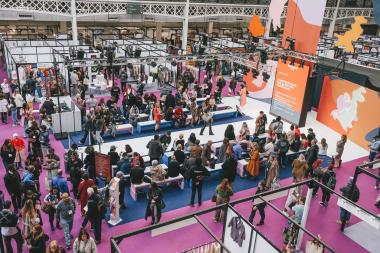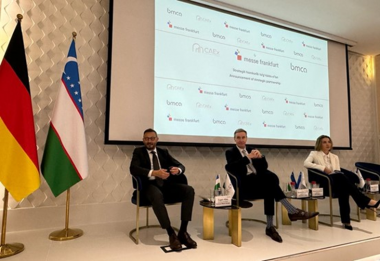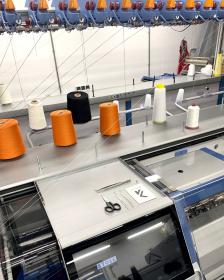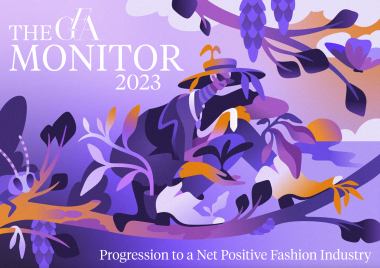CHINA WAVE: Successful presentation at Pitti Uomo 106
The start to the premiere of the CHINA WAVE pavilion at Pitti Uomo 106: the first stop of the "2024 China National Garment Association Overseas Programme" was a complete success for the participating designer labels from China. The Chinese brands impressed the international fashion world with their exclusive and extraordinary collections at the Costruzioni Lorenesi in the Fortezza da Basso in Florence. The famous fashion journalist, Suzy Menkes, was also impressed by the creations.
The styles and current looks from from VALLEYOUTH, KB HONG BY K-BOXING, RAXXY, JDV, FENGGY, BLACKHEAD, KEYONE BY HATTERSHUB, TYPETAIL impressed buyers, fashionistas and media representatives alike with their design expertise, creativity and product quality. The combination of contemporary styles with traditional Chinese elements, as seen in the collections of KB HONG by BY K-BOXING, JDV and VALLEYOUTH, among others, attracted international audience from Italy, Germany, France, Great Britain, Spain, Saudi Arabia, the United Arab Emirates, the USA, Mexico, Canada, Australia and many more.
Among those welcomed to the pavilion was Suzy Menkes, who emphasised the combination of tradition and modernity in collections such as those from KB HONG by BY K-BOXING and VALLEYOUTH in the CHINA WAVE pavilion. VALLEYOUTH's new collection was presented by fashion photographer Acielle from style du monde at Vogue World, while fashion blogger Augusto Ferretti commented on the brands' designs as "artistic sculptures". The appearance of the famous Chinese actor and singer AYUNGA as a testimonial for the new KB HONG by BY K-BOXING collection at Pitti Uomo attracted particular attention.
Further stops of the "2024 China National Garment Association Overseas Programme" are Who's Next in Paris and TheOne Milano in Milan in September.
The next CHINA WAVE presentation at Pitti Uomo is planned for January 2025.
CHIC / JANDALI MODE.MEDIEN.MESSEN































